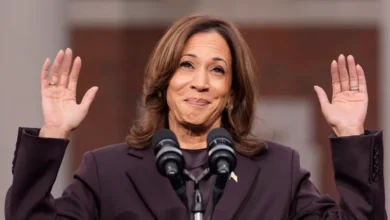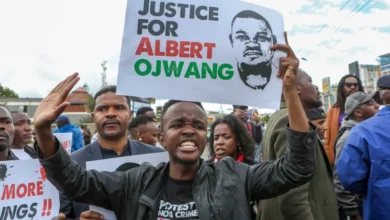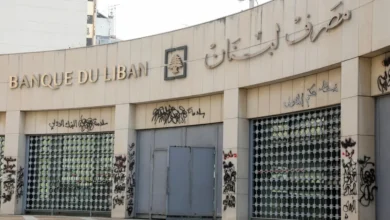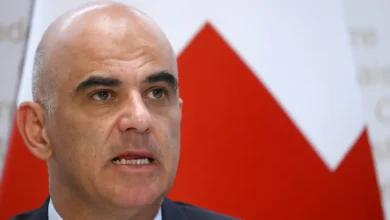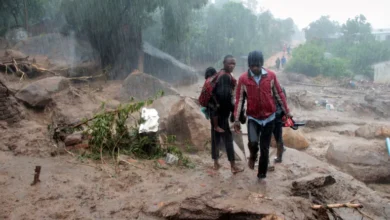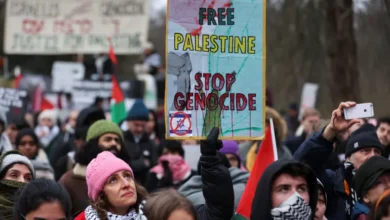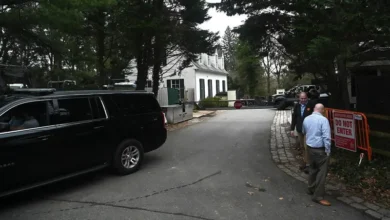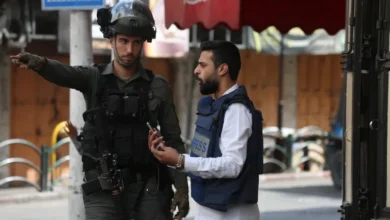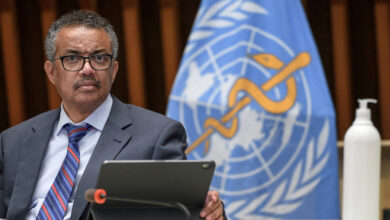South Africa elections 2024: Key issues by the numbers
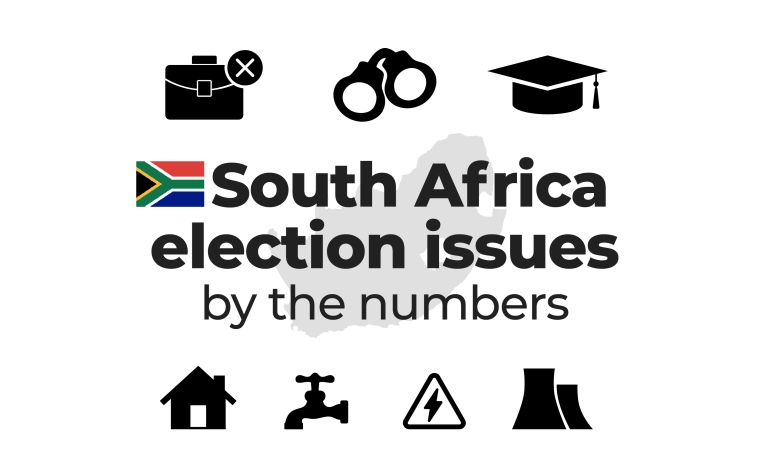
South Africa will go to the polls on May 29 for the most unpredictable election in the country’s 30 years of democratic rule.
The governing African National Congress (ANC) is projected to lose its parliament majority for the first time, possibly paving the way for the country’s first coalition government.With voter discontent high, leading opposition parties, including the Democratic Alliance (DA), the Economic Freedom Fighters (EFF), and newcomer umKhonto we Sizwe (MK) have put pressure on the ANC in online campaigns and countrywide rallies, promising sweeping reforms in hopes of swaying some 28 million registered voters to their side.
Jobs: One in three South Africans unemployed
The country has the highest unemployment rate in the world. For young people who have diplomas but find their education of no use, unemployment is the biggest issue on the ballot.
Analysts say poor industrialisation in the decades of ANC rule means Africa’s most advanced economy has failed to create jobs for its bulging youth population.
General unemployment rates rose slightly late last year from 31 percent to 33 percent during the first quarter of 2024.
By province, the Eastern Cape – known for being Nelson Mandela’s homeland, housing the city of Gqeberha, previously named Port Elizabeth, and being the poorest of all nine provinces – has the highest levels of unemployment at 42.4 percent. The North West province trails closely at 40.5 percent and the Free State at 38 percent.
On the other hand, the Western Cape, the home turf of the opposition DA party and where the city of Cape Town is located, has the country’s lowest unemployment levels at 21.4 percent, followed by the Northern Cape at 28.3 percent and KwaZulu-Natal at 29.9 percent.
Education and employment: Lingering inequalities
Historical inequalities continue to rack South Africa’s education sector, creating negative feedback in the employment sector.
Although schools were desegregated before the end of apartheid, Black-majority communities still have largely underfunded public schools with inadequate amenities like libraries and laboratories. Some do not have basic facilities like the internet and lack qualified teachers.
On the whole, the Black population has higher numbers of people who do not have any kind of education. Among white South Africans, however, a higher percentage are more likely to have attained a tertiary level education – three times the numbers seen in Black people, Indians, or mixed or multiracial communities.
Researchers say the lower levels of tertiary qualification in general are connected to lower skill levels and to the type of jobs people are qualified for. While 9.6 percent of people with a graduate degree are unemployed, the number more than quadruples for those who did not complete high school.

